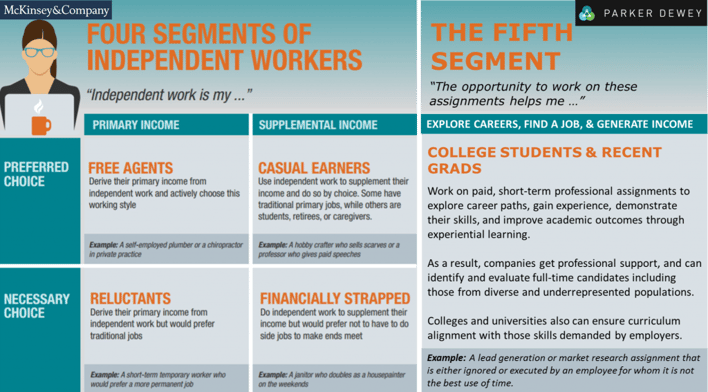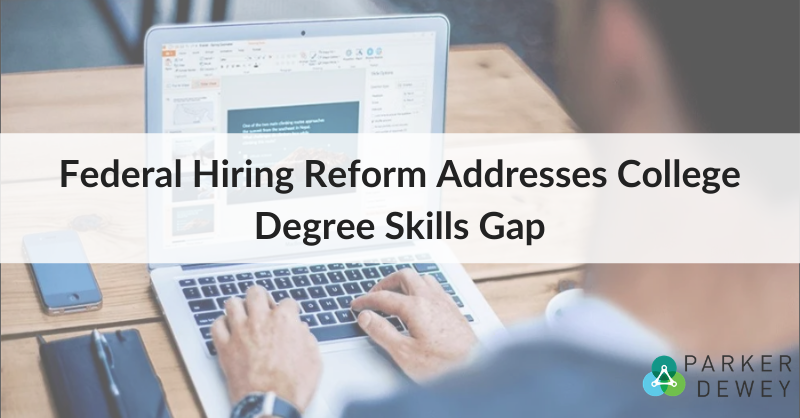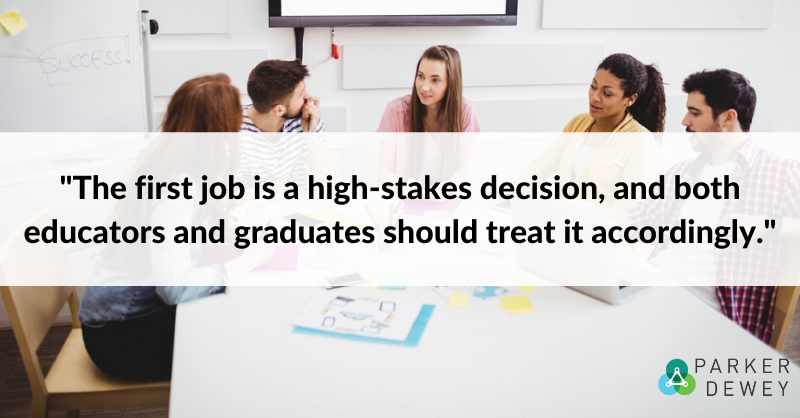
How the overblown gig economy will solve the nonexistent skills gap
This article was originally published by NACE, the National Association of Colleges and Employers.
I was reading a great summary of Jeff Weiner's presentation at Talent Connect during which he hit on some really important trends; however, I think there are some underlying assumptions and conclusions in two areas that may be flawed.
The nonexistent skills gap
First, there is clearly an issue when both 1) number of open jobs and time to fill are sky high and 2) un/under-employment is also massive. Many have concluded that this is the result of a skills gap. While there are clearly some areas where there may be a gap, the level of un/under-employment of recent college grads suggests there may be something deeper. Yes, one could argue that colleges and universities are not well preparing students, but this too seems to require certain assumption jumps.
We would argue that this situation is the result of a poorly structured system to match candidates with jobs, especially for recent college grads. Companies still rely on a resume and academic pedigree even though the data shows this method is flawed. Even emerging technologies are limited as they are using the same inputs, and for career launchers the data is too limited.
The reality is that companies are looking in the wrong talent pools, especially as we see increasing "specialization" of students in college coupled with attacks on traditional liberal arts education. For example, the skills gap argument often cites marketing professionals complaining about the lack of communications, analytical thinking, and creativity of recent grads. However, if one digs in they realize that companies are not considering candidates with the philosophy, history, and English degrees that specifically develop those skills. Furthermore, students in those programs often have limited opportunity to understand and demonstrate applicability of those skills in a professional environment given the limitations of traditional internship programs. Of course this is just one example, however holds true across many professions and majors.
The gig economy
The other claim is that freelance models will largely replace the traditional employee/employer relationship. This conclusion is based on increasing acceptance of freelance models coupled with the massive employee attrition (or job hopping) rate of Millennials. While this might suggest that companies prefer freelancers and individuals prefer gigging, this too is a flawed conclusion.
The reality is that companies have always worked with independent contractors and consultants for specialized needs, however recognized the benefits of traditional employees for many reasons; the same is true for individuals and their relationships with companies. The big change is that social media has provided a massive amount of information about what others are doing (what we call "the grass is greener" issue) while technology has made it one click away to find and apply for a job. As a result, individuals can more easily jump ship if they don't think they are in the right job, however often don't have the context really know if it's right or wrong. Furthermore, as this continues, employers are less willing to invest leading to a downward spiral.

The conclusion
We believe that the result is actually a positive one where more individuals are in the right jobs, and this will largely occur because of the trends highlighted above.
Specifically, companies are recognizing that beyond the immediate value of the gig, they also provide an invaluable opportunity to identify and evaluate entry-level talent more effectively than current methodologies—a mutual "test drive." By allowing college students and recent graduates to execute short-term assignments in line with the responsibilities of a new hire, companies both gain immediate support and improve hiring effectiveness.
Furthermore, these test drives also allow candidates to evaluate if a company and role are the right fit for him or her. Given the limited number of opportunities that college students have for authentic professional experiences, project-based work allows them to explore a variety of career options. The result is not only the ability to select the “right” company, but the context to confirm the fit and know that the grass isn’t always greener once accepting a role.
Given the low-risk and commitment, freelance models also allow companies to effectively identify new talent pools. With increasing costs of hiring and competition for the same individuals at the same colleges, companies are finding it increasingly difficult to hire the right talent. By using gigs, companies can evaluate career launchers at different schools, with different majors, and different background than the historical focus. Not only does this improve conversion, but providing this type of opportunity to someone who does not have the “right” academic pedigree drives increasing diversity, loyalty, and retention. Furthermore, accessing diverse candidates outside of traditional talent pools, project-based work helps companies “train” employees that a certain profile is not required to be successful.
It is great that these discussions are taking place as there are some exciting opportunities around skills, freelancing, etc. We just need to be careful that we don't jump to the wrong conclusions.




